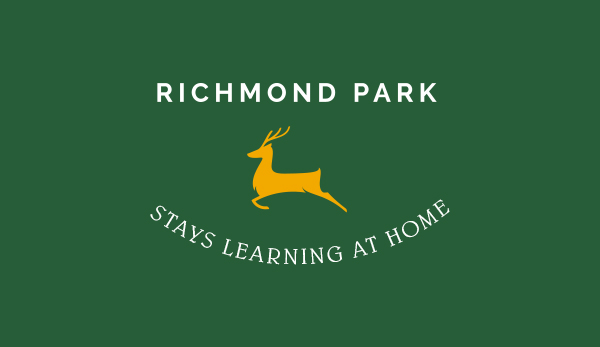
Dear Parents,
In these very challenging times, we believe that, as educationalists, it is vital we offer a positive and optimistic view of the near future and beyond. By its very nature, education has to be progressive, taking pupils from a state of not knowing towards new knowledge and skills, of knowing little about ourselves to self- awareness and empathy with others. The pandemic has not created this process, but it has increased the need to re-appraise where, what and how pupils learn and teachers teach. The word `crisis’ means in Chinese both ` danger’ and ` opportunity’. We know about the dangers and must keep protecting ourselves, but we also need to take the opportunities.
Recent thinking emphasises the need to move away from a static view of learning in school classrooms and towards ` more flexible, open forms of learning’ (OECD). Classrooms play a major role in education, but they need to be transformed into flexible learning spaces, re-structured and re-designed. Teachers will continue to have the major impact on children’s learning, but not speaking from the front to pupils listening in rows. Our school learning spaces need to allow for multiple methods, making use of many different resources. Here, new technology creates extraordinary possibilities for children to acquire knowledge, skills and understanding rapidly and, to a significant extent, independently. More than ever, teachers can be guides, facilitators, coaches, and technology can help all learners participate, use their multiple intelligences and become more autonomous. We all learn in different ways and have our particular strengths and weaknesses, so teaching also has to be varied and inclusive.
Other learning spaces in school, for example resource centres, specialist rooms, sports facilities, and the theatre have to be exploited to the full and also those outside the school, especially the children’s homes. Technology has vastly expanded the opportunities to learn at home and for creative interaction between the school spaces and the home space. Right now, we must explore this sphere of learning, for example flipped learning, digital textbooks, collaborative online projects, group presentations and new links between pupils and teachers.
Most thinking, research and practice focus on blending the traditional and the modern, on core knowledge and interdisciplinary themes, for example sustainability and globalisation, and on placing greater emphasis on thinking and communication skills, problem-solving, adaptability, entrepreneurship, and creativity. The University of Melbourne divides key skills into ways of thinking, ways of working, tools for working (for example, ICT and information literacy), and skills for living in the modern world( for example, citizenship, life and career, personal and social responsibility). At the centre of all is the concept of core values, which is determined by each school but always emphasises respect and kindness, integrity, equity, and honesty. Since its inception, Richmond Park School has made clear its values, the kind and range of learning it offers, and its determination to help pupils keep ` learning for the future, learning from the past’. We have made a promising start in all these areas: the extension of our curriculum through cross-curricular themes (for example our topics) and co-curriculum initiatives (such as sustainability and communication and thinking skills) and home-school learning. There is still a vast amount to learn and put into practice effectively, but our staff have the skills, ambition, and attitude to maintain and accelerate everyone’s progress. We need to keep learning and exploring ideas, different solutions and approaches. At our school, pupils, teachers and families will maintain conversations and discussions, always avoiding the rapid response `No, I don’t like the idea’ in favour of `Yes, that’s interesting, let’s think about it’.
The changes to what and where pupils learn demand that we both regenerate and adapt traditional approaches to how they learn and, at the same time, be up to date and innovative. They still must reach high levels in literacy, numeracy, science and the rest of an expanded curriculum but the ways in which they learn must change and reflect new realities. In English, for example, the four key elements need to take on this radically different situation. Reading books remains crucial, but children also need to analyse online texts, know how to triangulate evidences in Wikipedia and ensure facts are definite and judgments sound, ascertain which texts are reliable or unreliable. They need to write in different ways, listen and use their voice in a wide range of contexts, and collaborate with others more frequently.
As we have already stated, new technologies have a major role to play in 21st century learning. Digital technologies can help personalise learning, foment teamwork and collaborations, and increase the range of learning opportunities. Using interactive technology, iPads and tablets, online chats and meetings, pupils can achieve far greater independence and personal responsibility for their learning. These new technologies, media, and resources can also increase motivation, stimulate creativity, and help develop high level skills.
In summary, education has to move in different ways, always looking back to the past regularly, but with our eyes firmly focused on the present and the future. We must face up to the dangers and so overcome them, but we must also concentrate on the fresh opportunities. As the great Roman poet, Horace, wrote ` Carpe diem ‘. Yes, we must ` Seize the day’!


 Richmond
Richmond


